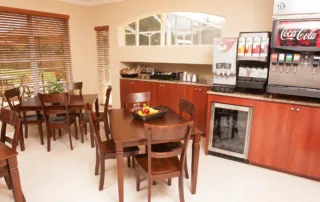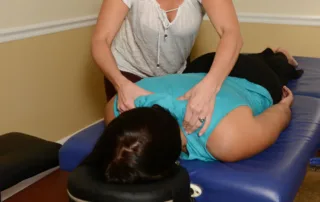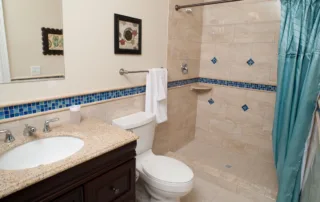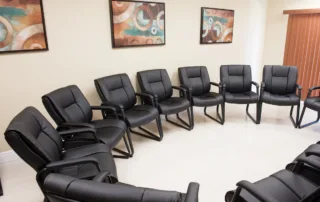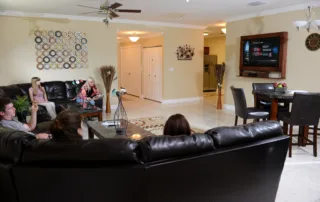Liberate Yourself from Addiction
or Mental Health Illness
or Mental Health Illness
Mental health illness and addiction can make you feel there’s no way out of your current situation, but don’t be fooled. Your body and mind have been tricked, but you have the power to set yourself free. Seeking treatment at a top rehab in Florida is the first step on your path to health and happiness, and you should feel proud to be on your way.
Let one of the best addiction and mental health treatment programs in Florida guide you through the recovery process, connecting you with the skills, coping mechanisms and additional resources necessary to liberate yourself from addiction.
Behavioral Health Programs in Florida
Whether you have a substance use disorder or a mental health condition, we can help. According to the CDC, behavioral health concerns are on the rise. Adverse childhood experiences, easy access, social pressures and an increasingly productivity-obsessed culture are just a few reasons why.
Often, mental health problems and substance abuse disorders occur side by side. Unfortunately, while drugs and alcohol can offer short-term relief from the symptoms of mental health disorders, they also make them worse in the long term. Our bodies are governed by a complex network of chemicals, and to feel motivated, fulfilled, and calm, they must be balanced.
Both mental health issues and addiction are characterized by imbalances, and the chemicals in substances wreak further havoc. Inpatient rehab centers are the perfect place to heal and learn how to help your body rediscover balance — or discover it for the first time.
Addiction and Mental Illness: Shared Causes
Even with recent advances in science, we don’t fully understand how mental illness and substance use disorders interact. However, scientists understand that a complex mixture of genetic, environmental and social factors combine to cause both.
When it comes to the question of whether substance abuse causes mental illness or mental illness causes people to abuse drugs, one thing is clear: It’s different for everyone. People’s minds, experiences and bodies are so varied that what causes addiction in one person might have no impact on another.
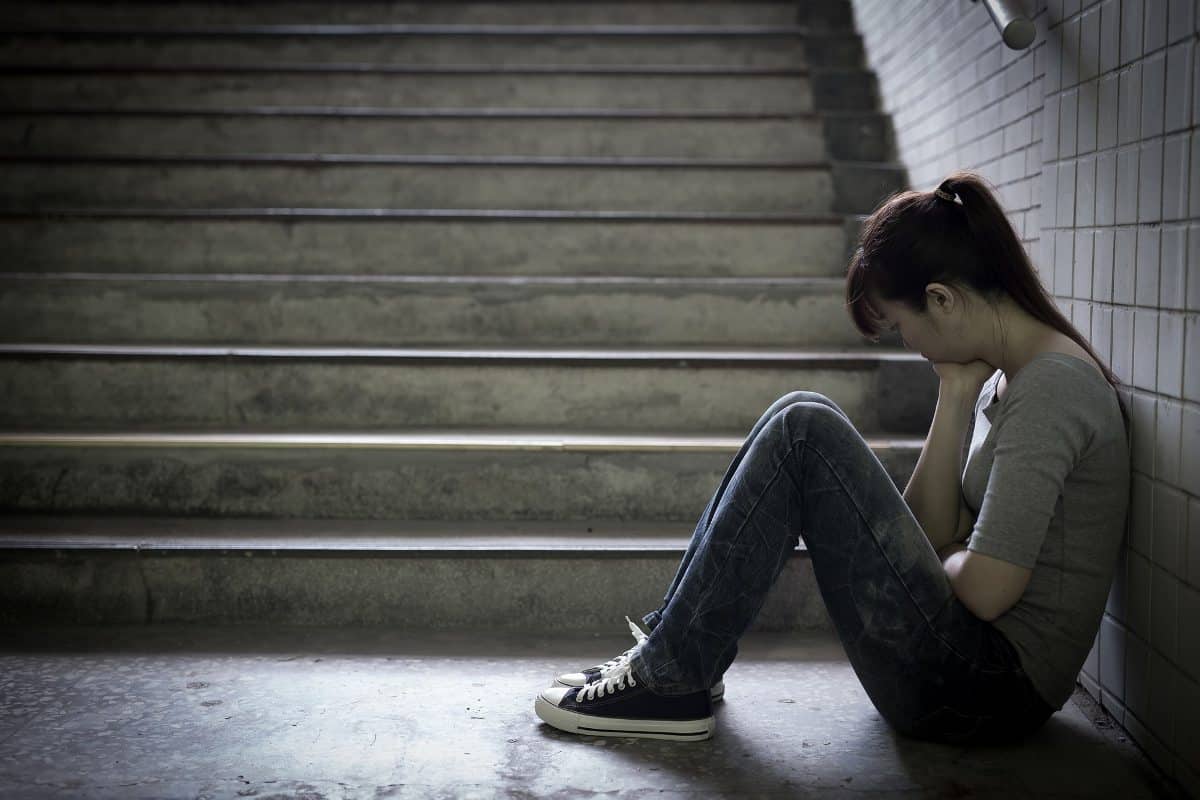
Substance Abuse and Mental Health Services Administration Data
According to data from SAMHSA, the top five substances involved in drug-related emergency department visits in 2021 were:
- Alcohol
- Opioids
- Methamphetamine
- Marijuana
- Cocaine
These are far from the only substances we treat. No matter which drug is stealing away your potential, we can help.
Our Drug and Alcohol Detox Treatment Center
We take care to only hire the most passionate, qualified staff to oversee our drug and alcohol detox programs. We’re unified in the belief that everyone has the ability to transform their lives, given the opportunity and resources.

Detox
Addiction treatment programs should begin with detox for most people considering attending rehab centers in Florida. During detoxification, your body clears out toxins and chemicals and adapts to being without your substance of choice. It’s by no means comprehensive addiction treatment, but it’s a vital step to prepare your mind and body for therapy.
Detox has a reputation for being notoriously difficult, often based on portrayals on TV and in movies. In reality, detoxing in a homey, safe and nurturing environment is infinitely safer than trying to do it alone or not doing it all. With us, you have access to medication-assisted treatment, 24/7 care from qualified staff and the backdrop of a ready-made support network.
Drug and Alcohol Rehabilitation
For many people, drugs fulfill a purpose. They might help with winding down from work or falling asleep, give confidence in social situations or provide physical or emotional pain relief. As such, it can be difficult for someone in the throes of addiction to see why getting sober would be a good thing at all. However, there are much more effective, healthier ways to self-soothe — you just need to move away from old habits and toward new ones.
There’s no shame in seeking out ways to feel better, but now that you know addiction is only making your problems worse, it’s time to find effective substance abuse programs.
Inpatient Treatment Programs
Addiction and mental health treatment aims to help individuals change their habits, heal emotional wounds, learn to cope with challenges and construct coping mechanisms. For the fastest results, this involves taking time out from your day-to-day life and hitting the reset button at an inpatient addiction rehab.
Healthy routines, rituals and habits are the mainstay of ongoing, sustained recovery. Inpatient care provides a unique opportunity to practice a schedule that’s conducive to healing — all while receiving therapy and treatments to support the recovery process.
What is Inpatient Rehab?
If you’re struggling with mental health disorders, drug or alcohol addiction, residential rehab is often the most effective treatment. It involves staying in a homelike setting where you can receive all the necessary treatments in one place while following a curated schedule tailored to recovery.

Comfortable Recovery in a Tranquil Setting
What Happens During Residential Drug Treatment Programs?
The best inpatient drug and alcohol rehab centers support your healing journey with a mixture of medication management and diverse therapeutic treatments. People respond to different modalities, which is why it’s so important to select a treatment center like ours with a wide range of treatment options. Some treatments we offer include:
- Individual therapy
- Group therapy
- Family therapy
- Marriage counseling
- Brain stimulation therapy
- Cognitive behavioral therapy
- Dialectical behavioral therapy
- Inpatient mental health
Why Choose Inpatient Drug Rehab Over Outpatient Treatment?
Unlike outpatient programs, a residential drug treatment center gives you the chance to start fresh. You can escape the triggers, temptations and stale habits of your old life and begin again. Other benefits of inpatient addiction treatment providers include:
- Inpatient rehab offers intensive and comprehensive addiction and mental health treatment
- You can detox and seek therapy in the same caring environment
- Residents have around-the-clock access to care
- It’s truly possible to escape the daily grind and focus on yourself
- You don’t have to worry about getting to and from appointments
- Access to complementary and experiential therapies
- A routine with built-in health-promoting holistic therapies such as yoga, mindfulness, fitness and nutrition
- More freedom to decide between different therapies
Residential rehab is also an excellent option for individuals with certain mental health disorders who haven’t found success in primary care treatment. People with mental illnesses need to take extra care to follow a healthy routine, get regular therapy and understand their triggers so they can manage their symptoms and live happily.
Why Choose Our Florida Mental Health
Treatment Facility?
Treatment Facility?
Inpatient mental health treatment in Florida can help you learn about the condition you’ve been diagnosed with, how it affects you and how to gain the upper hand over it. Inpatient care facilitates the most in-depth treatment available, as your treatment provider has an unparalleled opportunity to get to know you as an individual.
The key to successful treatment is highly personalized care. Even two people who share common symptoms may have opposite causes and require totally different treatment approaches.
What We Treat
Mental health disorder is notoriously difficult to diagnose and treat; it has also consistently been subject to misunderstanding. This is largely because while we can clearly see a physical injury or its effects, mental health disorder acts beneath the surface. Everyone experiences a certain amount of pain, unhappiness and dysregulation. But if your thoughts, emotions or behaviors are preventing you from having healthy interpersonal relationships and/or hindering your ability to function as a member of society, you should seek mental health treatment.
At Behavioral Health Centers, some of the disorders we help residents gain control over include:
- Anxiety and panic disorders
- Depression
- Bipolar disorder
- Mood disorders
- PTSD
- Obsessive-compulsive disorder
- Body dysmorphic disorder
- Personality disorders
- Self-harm
- Schizophrenia
- Sleep disorders
- Somatic symptom disorder
Co-Occurring Disorders
Dual diagnosis treatment is available at Behavioral Health Centers to help people who are struggling with co-occurring mental health conditions and SUDs or addictions to two or more substances.
How Do Inpatient Treatment Facilities Approach Mental Health Care?

For most people, mental health treatment involves a mixture of medication and a combination of therapeutic approaches. Complementary services such as yoga, education, mindfulness and brain stimulating treatments help you heal and understand how to care for your own mental health for long-term relief from symptoms. Examples of treatments include:
- One-on-one therapy
- Support groups
- EMDR
- Neurobehavioral therapy
- Cognitive behavioral therapy
- Dialectical behavioral therapy
- Mental health stabilizing medication
- Family therapy
Aftercare Programs
Addiction is a chronic disease, which means aftercare is necessary. It’s crucial that anyone struggling with substance use disorders understands that rehab is the beginning of their journey to recovery, not a cure-all. At a drug or alcohol addiction treatment program in Florida, a full team of medical professionals and addiction experts creates an individual treatment plan. You go through the most intensive, challenging stages of recovery under 24-hour supervision. In addition to counseling to address underlying issues, you’ll learn about your triggers and develop coping mechanisms.
At the end of your time at our rehab center, you’ll undeniably feel much better than you did when you arrived. After such comprehensive care, many people even feel “cured” — but this isn’t the case. You know how to manage your symptoms. For that to continue, you’ll need to maintain and continue putting into practice what you’ve learned. An aftercare program is the part of your care plan that continues as you readjust to sober life.
Veteran Rehab Centers in Florida
Another specialized treatment program here at Behavioral Health Centers is the veteran’s program. Military personnel are on the front lines and behind the scenes of some of the most challenging situations in the world. They’ve pledged to put the public’s safety ahead of their own and face scenes most people wouldn’t dream of. In turn, they become the most vulnerable to substance use or mental health issues.
Military Service and Post-Traumatic Stress Disorder
It can be tough for a veteran to seek help. You’ve been trained to be bulletproof, so admitting you need treatment can feel like admitting defeat. Just remember that as strong as your mind is, your physical brain is prone to stress. PTSD is commonplace along soldiers because of the extreme situations they face and is as serious as a bullet wound or broken limb. The sooner you seek veteran mental health help, the sooner you can feel like yourself again.
Rehab Alumni Recovery App
At our addiction treatment center, we truly understand the power of community. Being able to talk to a support network that understands and cares for you is critical to recovery, as is offering empathy and support to others. That’s why we developed the The Behavioral Health Centers alumni app — so you can continue to be part of our wonderful group of survivors.
Does Insurance Cover Rehab?
When it comes to insurance coverage, we work with most private health insurance providers. Fill out the online form to find out whether you’re covered by insurance and our team will run a free private approval for your policy.
Typically, the next part of recovery is to combat the psychological aspect of addiction. Your tailored addiction treatment plan makes this possible with the help of our counselors and passionate staff.

Addiction Treatment Programs
Our Florida rehab center is at the leading edge of the behavioral health industry and offers a private and convenient solution to addiction treatment and mental health issues.
